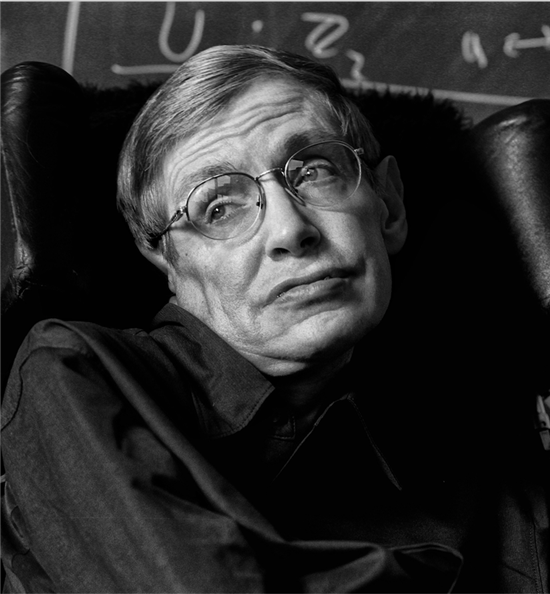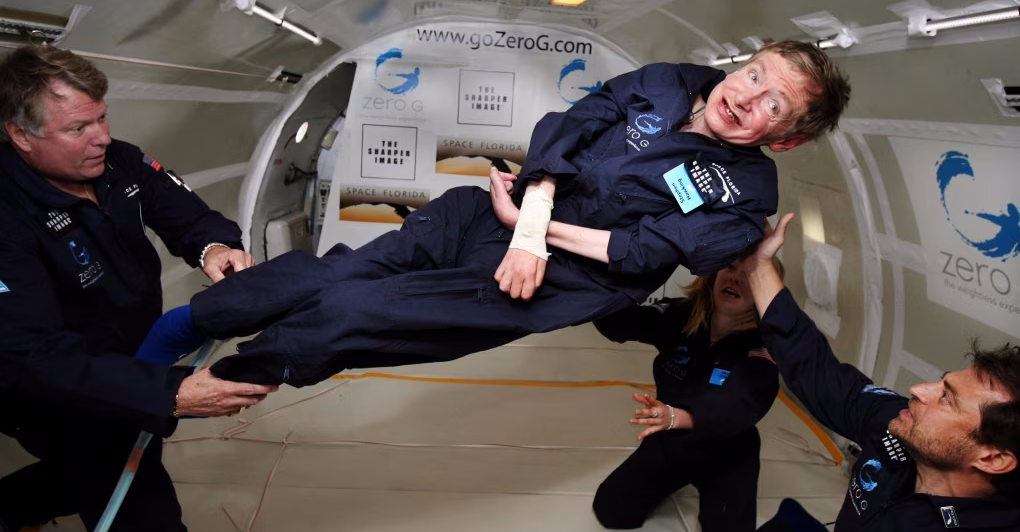Stephen Hawking

(January 8, 1942 – march 14, 2018)

In the last 50 years, our understanding of the universe and the study of the fundamental laws that govern it have changed tremendously, and one of the scientists who made an invaluable, if not essential, contribution was Stephen W. Hawking.
Together with other great scientists and scholars, he called for immediate action on the key challenges facing our global community. Hawking was one of the few scientists with a profound interest not only in theoretical physics and black holes but also in cosmology, the universe, and the future of humanity. He had an insatiable curiosity for answering humanity's great questions: Where do we come from? How did the universe begin? What is the deeper meaning of every phenomenon? Is there someone out there—is there a God? Can we travel through time? Can we predict the future? Will we survive on Earth? Are there other intelligent life forms in the universe? Will we travel through space to colonize other planets? Is artificial intelligence an opportunity or a threat?
Hawking was also a magnificent communicator and a bestselling author. The first edition of his book A Brief History of Time was published on April 1, 1988, and became a sensational success. Today, he is arguably the most famous scientist and theoretical physicist in the world (aside from Einstein, of course), akin to a rock star. A movie about his life was even made. Despite his disability and armed only with his incredible imagination, he tackled humanity's great existential questions, helping us understand that we live in a marvelous and highly complex universe governed by rational laws—laws that can only be discovered and understood through science and by individuals like him who dedicate their lives to this purpose.
“...I have had an extraordinary life on this planet, and at the same time, with my mind and imagination, I have traversed the entire universe and the laws of physics. I have ventured to the edges of the galaxy, traveled into a black hole, and returned to the beginning of time. I have seen highs and lows, success and suffering. I am both physically able and disabled... But the universe would be empty without the people I love and who love me; without them, all its wonder would lose its meaning in my eyes.
...However, there are other challenges and unresolved questions that future generations must address. Only if young people are willing or able to passionately dedicate themselves to scientific research will we obtain the answers we seek—provided they are supported by our leaders, universities, and scientific institutions.
...How will we feed a growing global population? Provide access to clean water? Produce renewable energy at sustainable costs? Prevent and treat diseases and avoid pandemics? Slow down global climate change?
Only science and research, together with technology, will provide the answers to these questions. Thinking about the future, we must start working together now to make that future a pleasant and safe place to live.
...I hope that in the future, even when I am no longer here, the people governing the world will demonstrate courage, creativity, and leadership. I hope they rise to the challenge posed by the goals of sustainable development and act not in their self-interest but for the common good of humanity as a whole! I am acutely aware of the value of time. Seize the moment and act now!”
So the real question is: What will happen? What possible future lies ahead for humanity?
Stephen Hawking had no doubts, confidently stating that the future will depend on science and technology far more than it did for previous generations. He was optimistic and firmly believed that humans will succeed.
"...Young people, in particular, must understand science better than those who came before them because it will become an unprecedented part of their daily lives. In his view, there are only two options for humanity's future: exploring space to find alternative planets to inhabit and positively leveraging artificial intelligence to improve our lives on Earth before it's too late.
...Every time we decide to embark on a journey, such as lunar landings, we open the door to new discoveries and technologies necessary to begin these journeys and make a great leap forward".
This is why the journey to the Moon becomes the first stepping stone toward the future. Remember the film 2001: A Space Odyssey by Stanley Kubrick? It featured a lunar base and a spacecraft launch to Jupiter—a science fiction film that, in a few years, will become reality, albeit with Mars as the destination.
We are going back to the Moon!
With the Artemis missions, NASA will use innovative technologies to explore the lunar surface as never before, establishing the first lunar base for a long-term presence on the Moon. Then, we will use what we learn on and around the Moon to take the next giant leap: sending the first astronauts to Mars.